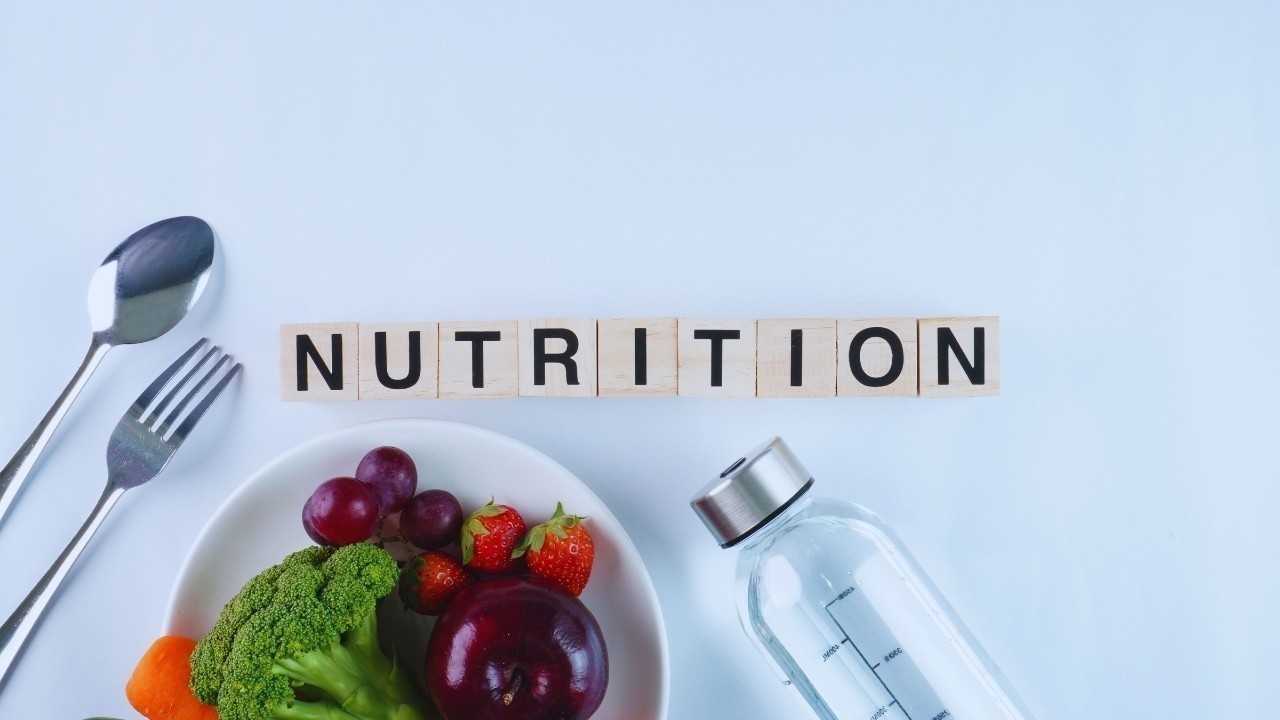
Post by : Anis Karim
This week has seen an exceptional spike in sign-ups and social-media mentions of personalized nutrition apps. These platforms, which tailor diet suggestions based on lifestyle patterns, daily habits, food logs, and sometimes biological markers, have grabbed the attention of wellness influencers, busy professionals, fitness communities and people simply trying to regain control of their health.
What sparked the surge? A combination of seasonal health concerns, changing food habits, year-end fitness goals, and a growing cultural shift toward understanding one’s body rather than following one-size-fits-all nutrition advice. As more influencers and health creators discuss how these apps track digestion, calorie balance, meal timing or micronutrient gaps, users have become increasingly curious.
Yet, beneath the excitement lies an important question: Are these apps worth the personal data they require?
The debate is growing, and this article explores both sides in depth.
Before diving into the trade-off debate, it’s essential to understand why personalized nutrition apps are trending so strongly this week. Several factors have collided to create the perfect storm.
After weeks of indulgence, most people look for a fresh start. Personalized nutrition apps offer a reset without extremism. Instead of strict dieting, they promise balance and custom recommendations.
People are more conscious of gut health, immunity, metabolism, inflammation and fatigue patterns. Apps that explain these patterns in simple charts resonate with health-minded users.
Wellness influencers sharing screenshots of insights—like nutrient breakdowns or energy-level graphs—spark curiosity. Visual data is inherently shareable, making these apps spread faster.
Traditional nutrition guidance can feel overwhelming. Personalized apps simplify it: one dashboard, one summary, daily actionable steps.
With people planning new-year wellness goals early, this is the period they experiment with tracking tools. Personalized apps feel like easy starting points.
The combination of these cultural, seasonal and behavioural factors explains the sudden virality.
At their core, these apps say they provide insight into your body's unique patterns and nutritional needs. Their appeal lies in a promise: “We’ll tell you what your body actually needs, not just what the internet says.”
Meal tracking with personalized scoring
Gut-health insights
Fatigue and energy-level mapping
Water-intake guidance
Daily recommended food lists
Blood sugar pattern suggestions (for compatible devices)
Alerts for nutrient deficiencies
Mindful eating nudges
Recipe recommendations custom-fit to dietary restrictions
They position themselves as health coaches in your pocket—always available, always personalized.
Understanding why people are gravitating toward these apps reveals something deeper about modern lifestyles.
People feel seen when an app acknowledges their unique patterns—like how they feel after certain meals or how sleep affects appetite.
Users appreciate immediate scoring or insights. A “meal score” or “daily balance summary” provides instant gratification.
With unpredictable schedules and rising health issues, people want to feel control over food choices. These apps give structure in a chaotic world.
The internet has conflicting advice on almost every food item. Apps reduce noise by providing tailored guidance.
Seeing progress charts encourages consistency. Many users say the app feels like a supportive companion.
Accuracy depends on the app type. Broadly, they fall into three categories:
Basic food-logging apps
Behaviour-tracking apps using algorithmic suggestions
Biological-data-driven apps
These rely heavily on self-reported data. Their accuracy depends on correct entries. They are helpful for building habits but limited.
These analyze patterns—like how often you eat late, skip breakfast or crave sugar. Their accuracy improves the longer you use them.
Some apps integrate data from devices. Others ask for optional at-home tests (gut analysis, blood markers, metabolism checks). These provide the most accurate insights but also raise the strongest privacy concerns.
Overall, personalized nutrition apps are not replacements for medical diagnoses—but users report they help them understand patterns they never noticed before.
Despite controversies, users continue to praise several clear advantages:
Most people underestimate what they eat. Apps reveal actual habits—not assumed ones.
Visual logs make portions easier to evaluate.
Realizing how snacks affect energy or mood leads to mindful choices.
Many users connect the dots between foods and digestion patterns more quickly.
Apps provide ingredient lists based on your nutritional needs.
Some help optimize when you eat, based on energy dips or surges.
Seeing progress—even small changes—is motivating.
These benefits explain why users remain enthusiastic despite privacy concerns.
Now we reach the real debate: Are the insights worth the personal data you hand over?
Personalized nutrition apps require varying types of data, including:
Eating habits
Daily routines
Sleep cycles
Movement patterns
Weight and body metrics
Health conditions
Sensitive lifestyle details
Sometimes biological samples
While the apps promise anonymity and security, users increasingly question how this data is stored, shared or monetized.
Nutrition data overlaps with medical and lifestyle data. Even basic logs reveal patterns that many prefer to keep private.
Not all apps clearly explain how long data is stored or who accesses it.
Some apps use data for “research, personalization or partner insights.” These vague phrases raise red flags.
Detailed food logs can be used to push product advertisements or supplements.
People worry future insurers, employers or marketers may gain access to their patterns.
Some fear they will rely too heavily on app prompts instead of internal signals.
These concerns form the core of the data-trade discussion.
Despite risks, most users continue using nutrition apps. Why? They believe they can mitigate risks through mindful behaviour.
1. Choosing apps with clear privacy policies
Users prefer apps that are transparent about data use.
2. Avoiding optional inputs
People skip entering personal medical history or test results unless necessary.
3. Using aliases or limited personal info
Some register with minimal identity data.
4. Checking settings regularly
Users disable “data sharing” or “personalized ads” in app settings.
5. Logging only what’s essential
People track meals and water but avoid sensitive personal notes.
This shows users want the benefits without giving up full control.
To determine if personalized nutrition apps justify the data trade-off, we must evaluate their value in several categories.
Those wanting general wellness, habit improvement or weight balance often find apps extremely useful. The data they share is relatively low-risk. For them, the benefits outweigh the privacy concerns.
The apps can provide insight but should not replace medical advice. They should be used cautiously, especially when sensitive data is involved.
If privacy is a core priority, choosing minimal-tracking apps or avoiding biological-data apps is wiser.
Many fitness enthusiasts find personalized nutrition apps empowering. They appreciate detailed macros, meal plans and progress charts. The trade-off feels acceptable to them.
Those who use the apps sporadically may find the data collection too heavy for their needs.
Ultimately, whether the trade-off is worth it depends on the user's comfort with sharing data and their expectations from the app.
Developers are upgrading features in response to user feedback. Expect:
More transparent privacy prompts
Local data storage options
Offline tracking features
Stricter consent controls
Better encryption
Anonymous or limited-profile modes
As competition grows, apps will need to earn user trust, not demand it.
As the trend grows, these apps could expand into:
Real-time monitoring via wearables
Smart kitchen integrations
AI-driven recipe creation
Personalized grocery delivery
Mood-food mapping
Microbiome-linked personalization
Sleep-nutrition correlation models
But with deeper personalization comes deeper data use. That’s the future question consumers must navigate.
Personalized nutrition apps went viral this week because they offer clarity, structure and empowerment at a time when health feels uncertain. They help people understand their patterns, improve habits and make informed food choices.
But the convenience comes with a cost: personal data.
Whether that trade-off is worth it depends on your comfort level, needs and values.
For many, the benefits—better awareness, improved digestion, more motivation—make the apps a worthwhile companion. For others, caution and selective usage are the way forward.
In the end, the best approach is balance: embrace technology that helps you, but stay informed, stay selective, and protect your digital health as much as your physical one.
This article is for general informational and editorial purposes only. It does not offer medical, nutritional or legal advice. Individuals concerned about health conditions or data privacy should consult qualified professionals.

Deepika Padukone Focuses on Storytelling Over Big Films
After exits from Spirit and Kalki sequel, Deepika Padukone prioritizes storytelling, empowering tale

Numou & Abhi Partner to Boost SME Finance Across Region
Numou and Abhi partner to offer faster, flexible digital financing for SMEs, improving liquidity and

Jake Paul vs Anthony Joshua: Heavyweight Clash on Dec 19
YouTuber-turned-boxer Jake Paul takes on former champ Anthony Joshua in an eight-round heavyweight b

DCAA Announced as Key Organizing Partner for Dubai Airshow 2025
DCAA takes a leading role in Dubai Airshow 2025, enhancing the emirate's aviation innovation and glo

Germany, Netherlands Secure 2026 World Cup Spots with Big Wins
Germany crushes Slovakia 6-0, Netherlands beats Lithuania 4-0, securing both nations’ places at the

AIIMS-Trained Doctor Shares Three Simple and Effective Tips to Reduce Belly Fat Fast
AIIMS-trained Dr Saurabh Sethi shares three simple tips to reduce belly fat, including a 12:12 fasti

Manika Vishwakarma Shines at Miss Universe 2025 in a Stunning Silver Sheer Gown
Miss India 2025 Manika Vishwakarma stuns in a shimmering silver sheer gown with hand-applied gems an

Keisuke Honda Believes Japan Can Win 2026 World Cup
Keisuke Honda believes Japan has the talent and potential to reach the semifinals or win the 2026 Wo

Netherlands Coach Sees Strong Team for World Cup 2026
Koeman praises Netherlands squad after 4-0 win over Lithuania, emphasizing quality, leadership, and

Tuchel to Guide Dropped England Players Ahead of World Cup
England manager Tuchel will guide dropped players like Alexander-Arnold and Bellingham to prepare fo

Josh Tongue Confident England Prepared for Ashes in Australia
Josh Tongue confident England is ready for the Ashes in Australia, highlighting a strong bowling att

Cameron Green Ready to Bowl as Australia Prepares for Ashes Test
Cameron Green is fit to bowl for Australia as the Ashes begin in Perth, adding strength to the team

Josh Naylor Returns to Seattle Mariners on Five-Year Deal
Josh Naylor returns to Seattle Mariners on a five-year, $92.5M contract, giving the team a strong li

Ryan Braun, Rick Porcello Highlight 2026 Hall of Fame Ballot
The 2026 Baseball Hall of Fame ballot features first-time candidates Braun and Porcello, plus 10 oth

Sabres Defeat Oilers 5-1 with Ostlund Leading Impressive Victory
Buffalo beats Edmonton 5-1 as Noah Ostlund scores twice and the Sabres defense limits the Oilers’ st